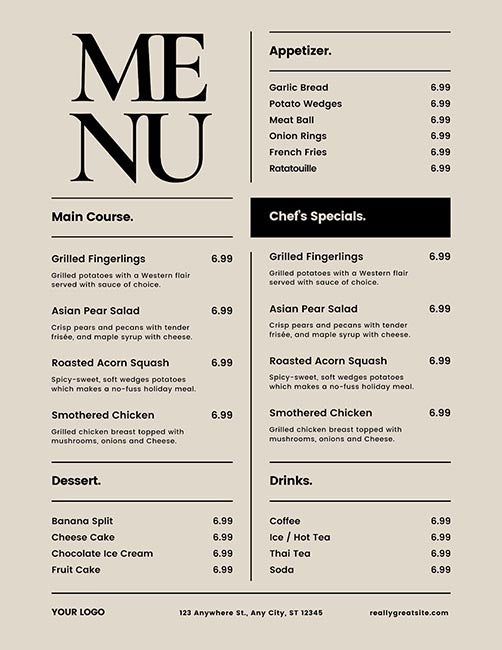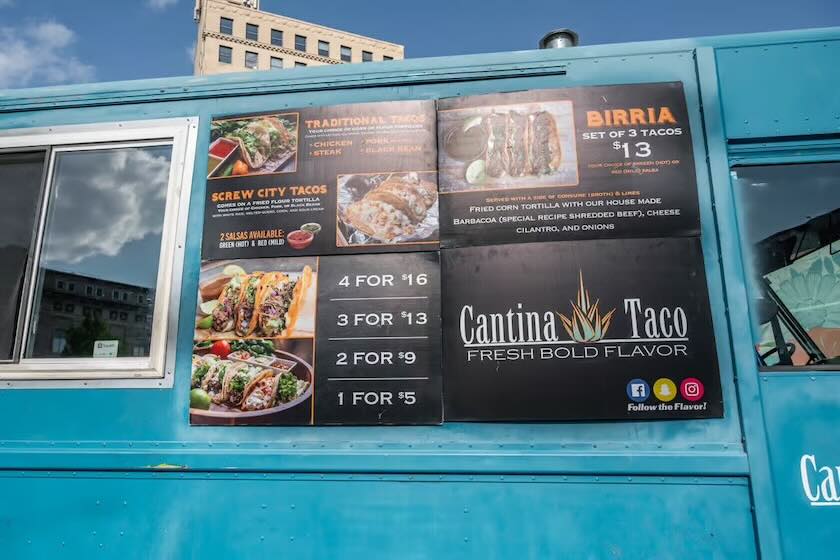The debate many food entrepreneurs will have with themselves will be whether or not they should choose to start a food truck versus a restaurant. The debate starts and ends with some key factors: your startup capital, the scope of your menu, the amount of labor you need, and the type of experience you want […]
The debate many food entrepreneurs will have with themselves will be whether or not they should choose to start a food truck versus a restaurant. The debate starts and ends with some key factors: your startup capital, the scope of your menu, the amount of labor you need, and the type of experience you want your guests to have.
If you want low startup costs, a flexible location, and a smaller menu, then a food truck is your best bet. But if you’re looking for higher-earning opportunities and to offer a more classic dining experience for customers, then go with a restaurant. Below, we compare both so that you can make the best decision for your business.
Twenty years ago, it would have been comical to some if you said you wanted to start a food truck. But with the rise of chefs such as Roy Choi and the food truck movement over the past few decades, it can sometimes make more sense to start within the food truck space. Opening a restaurant, on the other hand, can lead to long-term growth and more opportunities to make more income and have higher margins.
Let’s take a look at the pros and cons of each to determine which seems like the better option for you when comparing food trucks vs restaurants.
| pros | cons |
|---|---|
| Easy to expand and scale | Small space dictates a smaller menu and offerings |
| Low startup costs and maintenance costs | Logistics can be tough, especially for newer cooks/owners |
| Ability to meet customers in different locations and popular areas | Weather, poor foot traffic, and overcrowded zones can affect business greatly |
| The limited menu allows for a focus on one concept and core dishes | Local legalities can be a hassle to deal with |
The costs we will go over below are estimates so that you can see on paper how the businesses stack up financially against each other. Your situation and the situation of other business operators can vary, but this rough look should give you an idea of what you are walking into and what you can expect with the cost of operating either business.
| Expense type | food truck | restaurant |
|---|---|---|
| Cost to purchase | $3,250–$300,000 | $160–$200/square foot |
| Rent | $500–$1,000/month/lot | $3,000–$6,000/month |
| Permits & Licenses | $1,500–$12,000 | $5,000–$20,000 |
| Food Cost | Low–medium cost | Medium–high cost |
| Labor Cost | Low cost | Medium–high cost |
| Maintenance | Low–medium cost | Medium–high cost |
| Customer Order Value | Low–medium | Medium–high |
| Ability to Acquire Liquor License | Only for certain events | Can be obtained for full-time use |
| Staff Training & Certification Cost | Low–medium Cost | Medium–high cost |
| Average Cost to Start | $50,000–$400,000 | $100,000–$2,000,000 |
On paper, it is pretty apparent that starting and operating a food truck is more cost-efficient. But what you make up for in cost, you can lose in menu diversity, liquor sales, and higher check averages. If you are low on startup funds or want to test a concept, then a food truck is a great business model. But if you have the funds and want to grow your food concept in a restaurant, then the opportunity for higher earnings will lie in that business model in the long run.
The key considerations for building out a menu for a restaurant vs food truck are how you can maximize your profit while keeping in mind the amount of space and labor you have in each setting. Below is a quick look at how menu creation should be viewed for each business type.


It is important to know the limitations or differences in the menus. You may have a great concept, but if the concept is too large for a truck or too small for a full restaurant, then it is more likely to fail. Your menu determines how you bring in revenue, and your menu is dictated by the space you are working in. Be sure to consider your business plan, the type of food you are serving, and how broad your menu is before deciding on the specific model you will choose to serve food in.
There are many different routes you can take to becoming a food business operator. A restaurant is a great goal, but it can be cumbersome and take a lot of upfront capital and work to see a return on your investment. On the flip side, owning a food truck can come with quick returns financially, but can be limiting or may not serve the needs of the food you are trying to sell.
Below are some other options to consider beyond restaurants and food trucks.
These three are great options to look at in the food industry, but there are so many more options the deeper you dig into what is available. For example, whole career paths can be built on restaurant and food business consultation. You can work in food manufacturing, either by making consumer packaged goods (CPG) at scale for your own smaller business or by applying your skills to a larger company. And there should be no surprise in the number of chefs and cooks involved in food media—myself being one of them. The opportunities in the food industry are endless, and you can go far as long as you understand your skillset and how to apply it in different sectors of the food world.
Below are some of the most frequently asked questions I hear when discussing food trucks vs restaurants.
This totally depends on your situation, the food you cook, your goals for your business, and how you want your customers to experience your product.
For operators who want a fast, nimble, and relatively easier startup for their business, then the food truck is definitely the answer. But for operators that want to build out a space for their customers to dine in, have higher margins, and provide a more conventional dining experience, then a restaurant is the way to go. A restaurant can be a mainstay in a region, while a food truck or fleet of them can connect to customers wherever they may be.
At first, a food truck will tend to be more profitable. With lower startup and overhead costs to cover, a food truck’s returns can be great, and your profits can exceed a restaurant percentage-wise in the future. But if you own restaurants that are successful and can not only expand but franchise out, then owning a restaurant can be more lucrative and more profitable in the long run. This path has higher costs and higher risks but can also have higher rewards in the long term.
One of the advantages a food truck has over a standard restaurant is mobility. You can go to where your customers are, and being able to meet them out to offer food is something a restaurant cannot match. Another advantage is the relatively lower cost of operating a food truck. With lower costs, you can see your return on investment much quicker. Finally, a food truck will often have a more limited menu, allowing you to focus on what you serve and provide an offering that customers can enjoy that is not complex, such as a restaurant menu.
Not everyone starts with a restaurant. The beauty of the food truck is that you can get your brand, your cooking, and your business out there with a relatively low budget. When your brand becomes successful, there is demand for it, and you have funds in your business that can help you open a restaurant, which is when you would then open a brick-and-mortar.
A Washington, DC-based business, Jerk at Nite, started as a food truck and then went on to be so popular that they opened their own restaurant space. This is a common story: having a food truck succeed and then being able to open your own place. When the brand is thriving, and you have done your financial projections for building a restaurant, that is when you want to open your own space.
Check out this podcast episode discussing the rise of Jerk at Nite from a food truck to a full-blown restaurant group.
There is no need to have one or the other—plenty of restaurants operate food trucks that share their restaurant concept. A food truck can be a great way to expand your business, reach more customers, and provide another channel of income. If your city is friendly to food trucks, or you see a business opportunity, then investing in a food truck can be a great decision for your business.
There are many positives to both owning a restaurant and managing a food truck. Both business models can yield great results, and both have their own unique challenges. In the debate of restaurant vs food truck, the ultimate winner for your personal needs will come down to the startup capital you have to invest in the business, the style of food and service you desire, your geographic location, and how fast you want to scale your food business. Either way, both are worthwhile businesses for any food professional to enter into.
Ray Delucci is a graduate of The Culinary Institute of America with a Bachelor’s in Food Business Management. He has experience managing restaurants in New York City, Houston, and Chicago. He is also the host of the Line Cook Thoughts Podcast, where he interviews and shares the stories of foodservice workers. Ray currently works in food manufacturing and food product development.
Property of TechnologyAdvice. © 2026 TechnologyAdvice. All Rights Reserved
Advertiser Disclosure: Some of the products that appear on this site are from companies from which TechnologyAdvice receives compensation. This compensation may impact how and where products appear on this site including, for example, the order in which they appear. TechnologyAdvice does not include all companies or all types of products available in the marketplace.